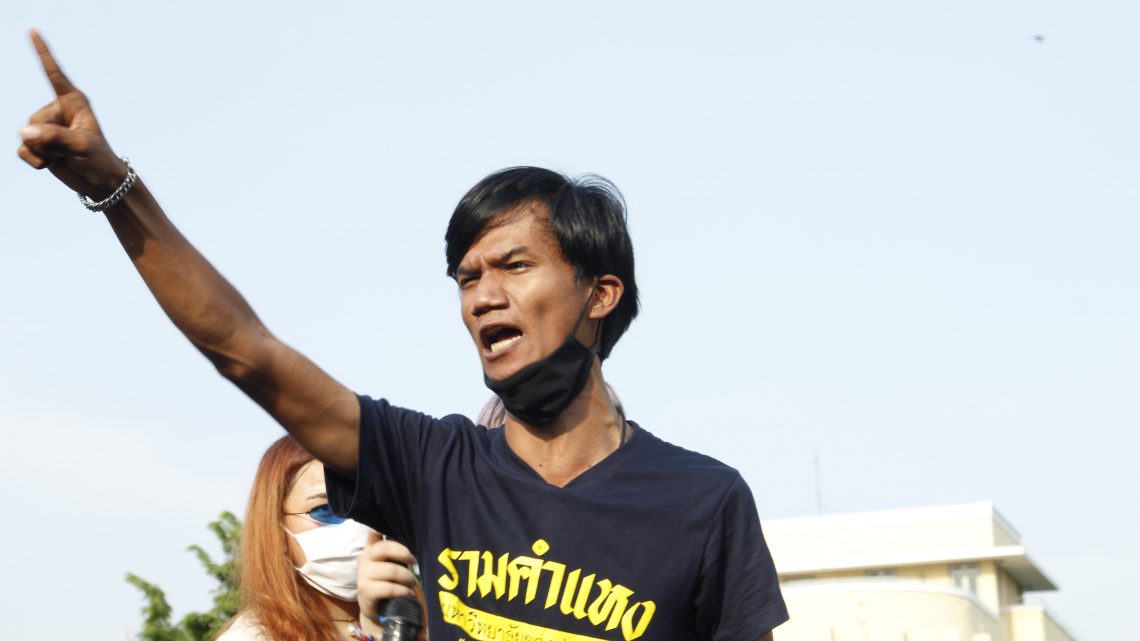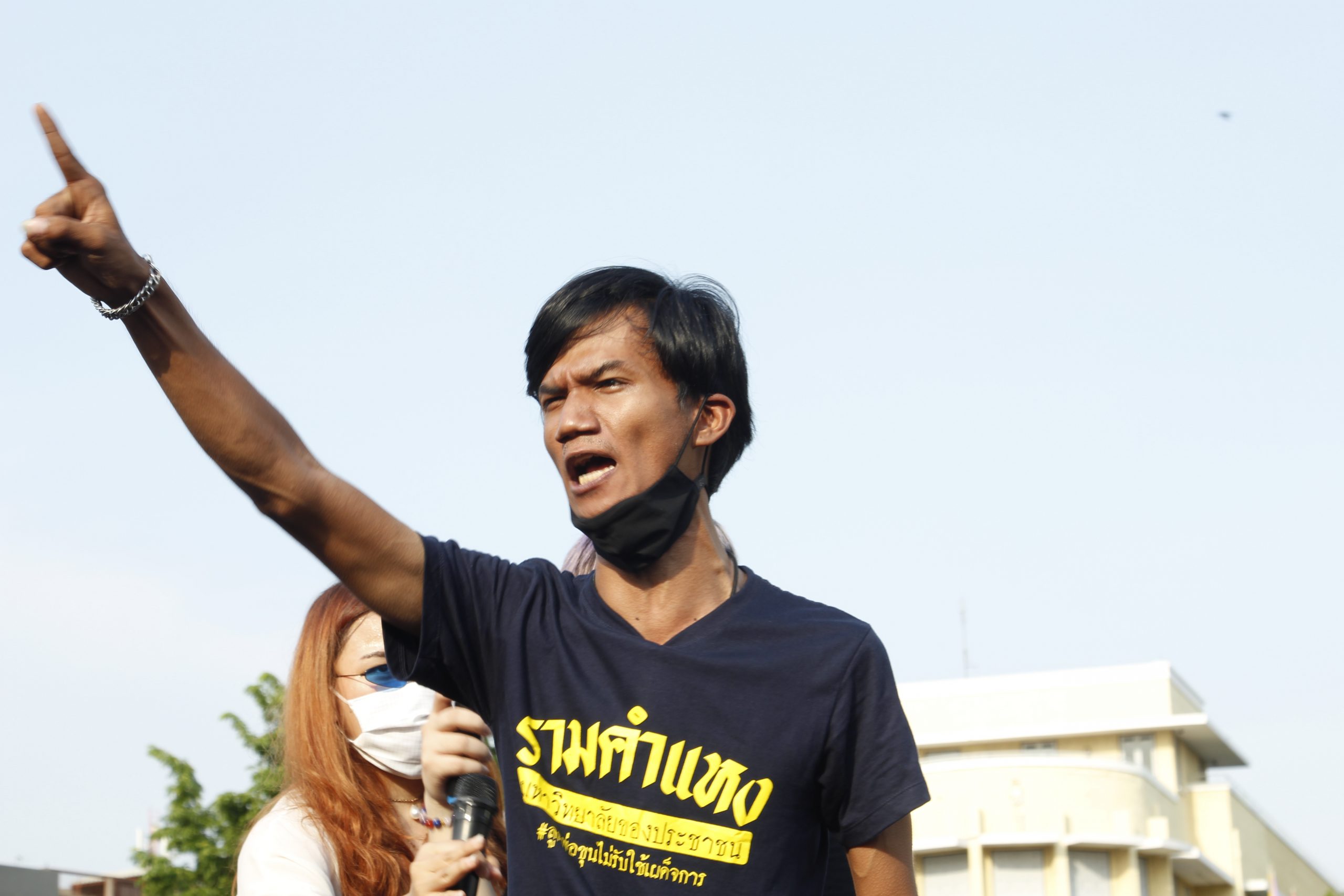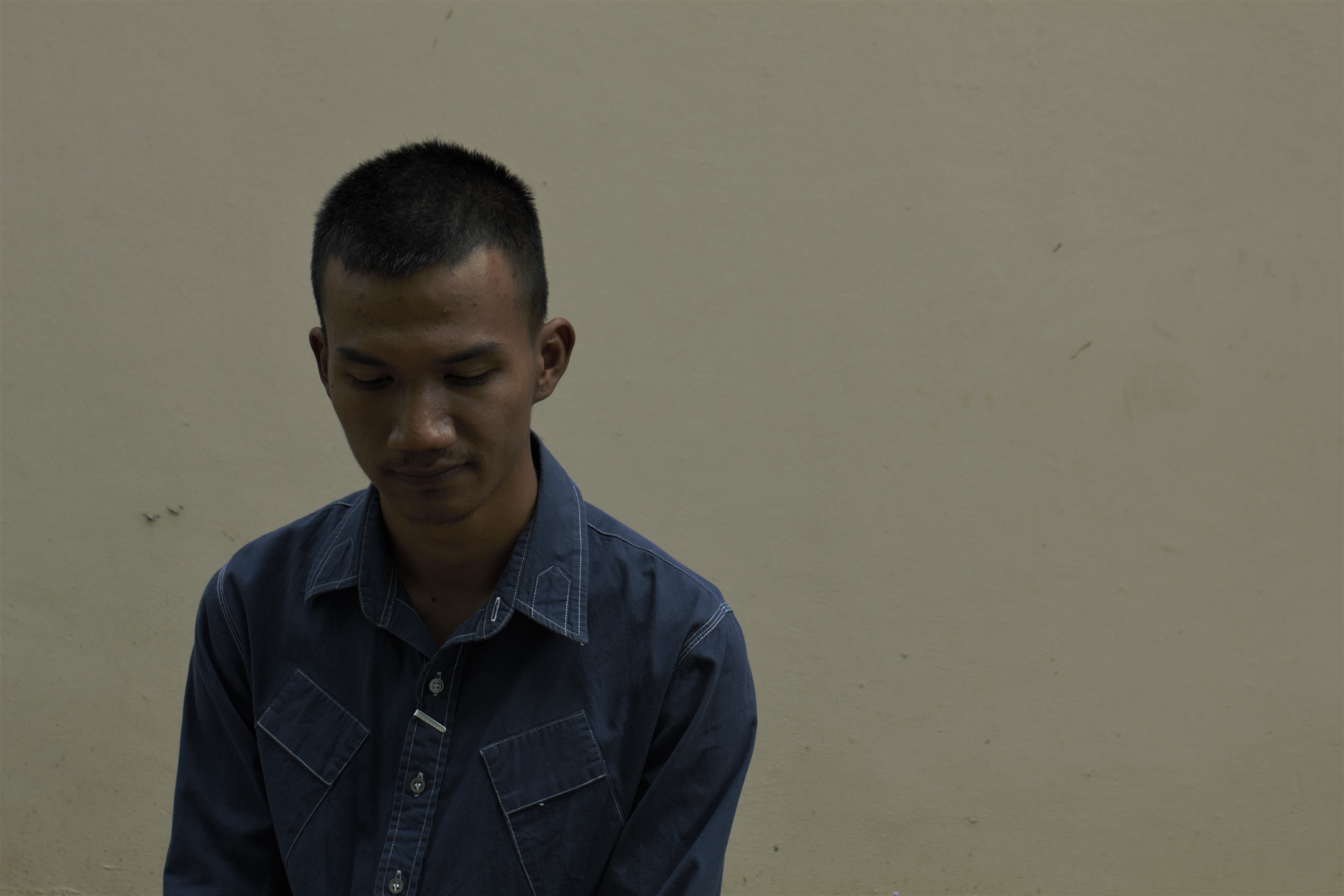
Meet the ‘Hero’ Thai Activist at Forefront of Historic Pro-Democracy Protests
September 19, 2020Inside his prison cell, the 24-year-old stared up at the ceiling from a mat on the concrete floor. His thoughts wandered back to the spirited pro-democracy movement he joined in July. He thought about how long he would be kept away from his family and friends. But above all, he was worried about the thousands of young Thais who would keep protesting without him.
Panupong “Mike” Jadnok is one of many protest leaders detained after participating in unprecedented youth-led protests that have drawn tens of thousands to the streets. But despite being targeted by police more than any other activist, he’s not backing down. His fearlessness of authorities, relatable charisma, and modest upbringing set him apart from many other young government critics.
Since mid-July, they have called for three major changes to Thailand’s power structure: the dissolution of parliament, the rewriting of the nation’s military-drafted constitution, and for the state to stop harassing and intimidating critics. It's also the first time a modern protest movement in Thailand has so openly discussed the role of the kingdom's powerful monarchy, which is protected by lese-majeste laws.
After his most recent arrest, Panupong was forced to strip naked, sprayed down with water, and invasively checked for drugs. The guards asked him why he’s “caused the country so much trouble,” sometimes even lightly pushing him around with the toes of their boots. The experience was degrading. Moments earlier, he was standing in line with a range of inmates waiting to have their heads shaved. Most were there on drug charges, others had been convicted of violent crimes.
In what some observers saw as a move to placate the growing protest moment, Panupong was abruptly released with a prominent human rights lawyer after five days in jail and is now waiting to hear if he will be sentenced on a number of criminal charges that could see him imprisoned for years.
“It was very dehumanizing, we were treated as if we committed some terrible crime,” Panupong told VICE News this week, as he prepared for another massive demonstration planned for Saturday, Sept. 19, expected to draw up to 100,000 people. “It’s now normal. Anyone who comes out and demands for human rights and justice ends up being prosecuted.”
“It's not even like I was organizing blockades, or occupying streets. But it’s obvious that our country is not just, there are no rights and true freedoms.”
Dissatisfaction built in February when the Constitutional Court dissolved one of the most threatening opposition parties, Future Forward. Tensions escalated with forecasts of widening economic inequality. The COVID-19 pandemic put a momentary pause on activity. Once Thailand began easing restrictions in response to a steep drop in cases, the movement resurfaced with vigor.
The disappearance of a prominent Thai activist, Wanchalerm Satsakit, who was abducted by unidentified men in broad daylight in Cambodia in June, was another major catalyst. An image of Wanchalerm smiling and using the three-fingered salute from the The Hunger Games movies has become something of an iconic protest symbol, with posters appearing on walls, streets and public spaces in major cities.
Panupong is new to Thailand’s pro-democracy movement. Compelled by his grassroots upbringing, thousands of lower-middle class youth identify with his story. Last year, he was working with underprivileged youth in leadership programs. But it’s his bravery that has turned him into one of the most important visible figures calling for change.

“I never thought I'd be where I am. I was working in social work before, but politics is something I never thought I'd get involved with,” he said. “It's very messy, and I didn’t want to be in a space where I have to be in the limelight with media attention. But it has happened, and now some people see me as some kind of figure or call me a hero.”
He has seen firsthand the realities of living in what some studies have called “the most unequal society in the world.” He personally experienced Thailand's immense wealth gap, watching his mother work long hours with little opportunity of advancement in order to raise her three children. In high school, he realized that curriculums across the country were not consistent. The quality of the programs depended on the province you lived in, he said. “I noticed that these kids in the cities get much better education, much more advanced, so I asked myself, ‘Why is it this way?’”
“There’s this system that has made it difficult for the poor to climb up the social ladder,” he said.
“Of course, in society everyone has to struggle to climb up the ladder, but the social structure in Thailand keeps those at the bottom from moving up. It shouldn't matter where you come from, you should have equal opportunity. We all have the same human dignity.”
His message has been heard by tens of thousands, and the state has taken notice. The authorities have clamped down on Panupong arguably more than any other rising dissident involved in these new protests. He’s been arbitrarily detained, suddenly released, and arrested multiple times.
He was plucked off the street on July 15 for protesting the government’s handling of the pandemic. Angry that a group from an Egyptian military delegation was allowed to leave quarantine to go shopping, with one of the men later testing positive for the virus, Panupong took to the streets with a friend to picket a government visit to Rayong led by Thai Prime Minister Prayut Chan-O-cha.

On Aug. 7, Panupong and human rights lawyer Anon Nampa were arrested for speeches they gave at multiple rallies. The men were released on bail after supporters pressured police overnight at the station where the men were being held. Two weeks later, Panupong was arrested again on Aug. 25.
Even though he is now awaiting trial, his spirits are still high. He is focused on Saturday’s rally. It is being held on the anniversary of a 2006 coup that ousted ex PM Thaksin Shinawatara. Protesters plan to march on Government House to submit a petition with their demands. Police estimate up to 50,000 could march, but student leaders believe there could be up to 100,000. While most demonstrations have had peaceful conclusions, there is growing speculation that a crackdown could be coming. Prayut recently warned protesters to not “violate the palace,” and that they risk “destroying the livelihoods of tens of millions of Thais.”
At a recent protest, Panupong took his time talking to supporters as it began winding down, exchanging selfies and positive words. His mother stood to the side with a smile, watching him with pride. He says she encourages him to fight on even if it looks hopeless.
“When I made the decision to refuse the bail conditions and go to jail, I discussed it with my mom first,” he said. “She was the first person I called. I told her, ‘Mom I don’t think I can accept these conditions, I can’t accept the way they’ve treated me, I think I will choose to go to prison”” he said, recalling an emotional moment over the phone.
“But she said, ‘Really? You have more strength than this. Are you really going to let sorrow take over?’ She nudged me to keep going even when I didn’t know that I could.”
